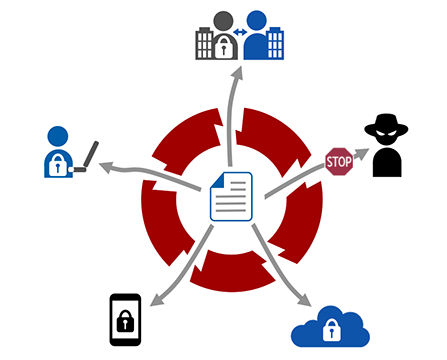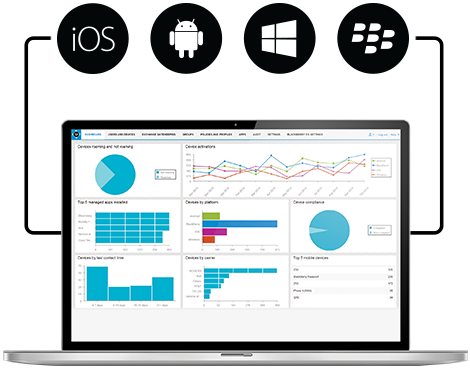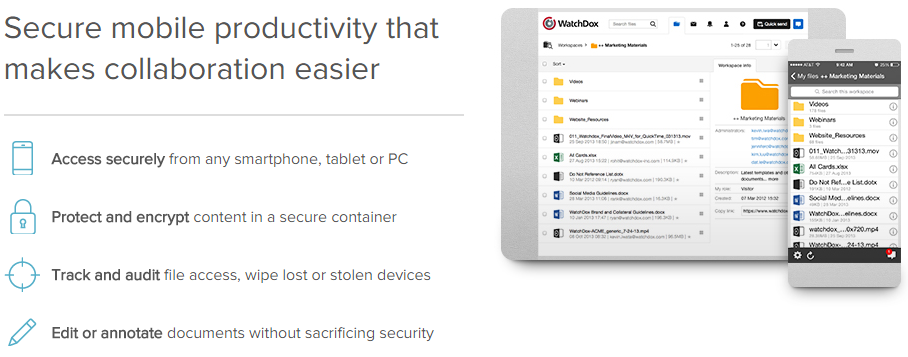BlackBerry Acquires WatchDox To Boost Enterprise Security
BlackBerry announced today that it acquired WatchDox, a company that focuses on secure enterprise file sharing and syncing (EFSS) solutions based on DRM technology. BlackBerry wants to use the new acquisition to increase the security of its products and services for enterprise customers. The technology will be available with the company's BES12 mobile management solution for enterprise. BES12 supports BlackBerry phones, Windows phones, Samsung Knox devices and iPhones.
WatchDox's secure file-sharing technology allows end users to revoke access or delete the files remotely and also gives administrators the ability to lock the files or remove access to them in case of a breach.
After the recent major hacks of Sony, JPMorgan and others, companies seem much more interested in protecting their documents from becoming public or having their customers' data exposed. BlackBerry seems to want to target those companies as customers now by leveraging the WatchDox acquisition.
"Sharing data outside the corporate walls can significantly increase workforce productivity, but can open an enterprise to serious financial and reputational risk if not implemented with the proper control," said Maribel Lopez, Principal and Founder, Lopez Research. "WatchDox provides this control and truly focuses on data-centric security. Their enterprise file-sync-and-share technology will be an important enhancement to BlackBerry's cross-platform EMM portfolio, as it delivers new capabilities while ensuring the level of security that enterprises have come to expect from BlackBerry."
According to WatchDox's CEO and co-founder, Moti Rafalin, the main problem with security in most companies today is that they try to protect the data only at the network level or at the device level. That includes using network intrusion detection systems, firewalls, anti-viruses, malware analysis tools and so on, but few actually protect the data itself.
This usually happens because encrypting the data would either make employees less productive, if the data protection and the sharing of that secured data isn't easily done, or because the higher-ups believe the other external methods of protection are sufficient.
To provide strong data protection, WatchDox believes a DRM solution is also needed. The idea is to make it so that files can't be accessed by anyone but authorized users, even if a breach happens and the files fall into the wrong hands. WatchDox technology also allows for the files to self-destruct when anyone but the intended users tries to access them.
Get Tom's Hardware's best news and in-depth reviews, straight to your inbox.
The company also said its technology is easy to use, because if it wasn't and it interfered with the way companies do business, then the stronger security features would be disabled.
Although DRM can be useful to enforce limited access to files, it also has quite a long story of ending up being broken, regardless of the technology or implementation. WatchDox's technology may improve BlackBerry's existing security solutions as well as help the company expand into new cloud services markets, but it likely can't guarantee the data of its future customers will not be breached.
Follow us @tomshardware, on Facebook and on Google+.
Lucian Armasu is a Contributing Writer for Tom's Hardware US. He covers software news and the issues surrounding privacy and security.
-
ldun "WatchDox's technology may improve BlackBerry's existing security solutions as well as help the company expand into new cloud services markets, but it likely can't guarantee the data of its future customers will not be breached."Reply
The same thing can be said of any security method... All the security experts can do is make it harder for someone to get a hold of data. I'd rather have many layers of "breakable" protection than nothing at all, and I'm sure 99.999(recurring)% of IT/security staff would agree with this.


